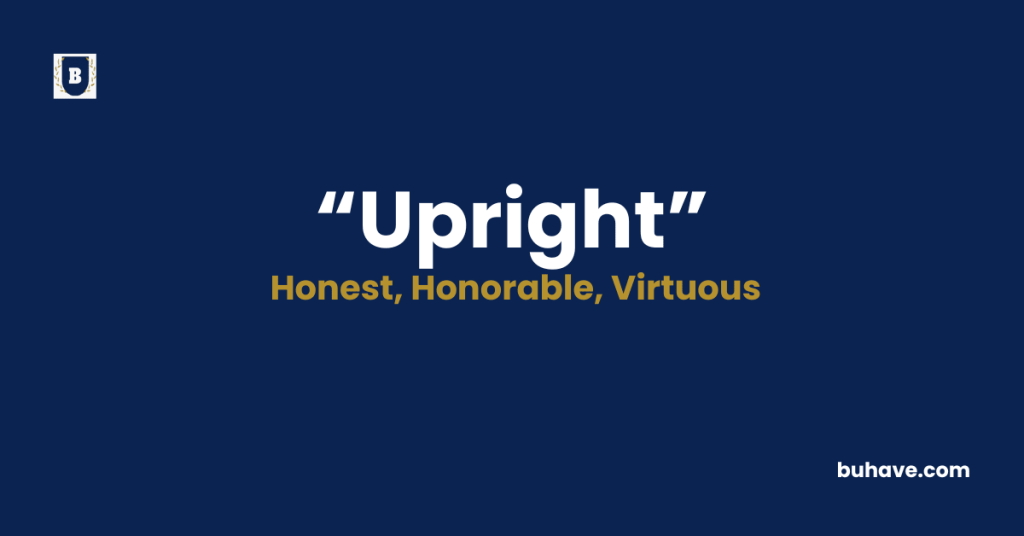The word upright (Adjective) describes someone who is honest, moral, and principled, or something that is positioned vertically. In this guide, you’ll learn the full definition, synonyms, antonyms, etymology, and real-life examples of how to use upright correctly in sentences.
Upright Explained in Depth
A complete and detailed guide to the word upright, including meaning, definition, examples, etymology, synonyms, and antonyms.
Meanings of Upright
Upright means both morally sound and physically vertical. When used to describe a person, it refers to integrity, honesty, and strong moral principles. When used for objects, it describes being in a vertical or standing position.
Definition
Upright as an adjective refers to someone who is honorable, truthful, and ethically correct in conduct. It also means standing erect or positioned vertically. The word suggests rectitude and a straightforward, just character when applied to people, and stability and correctness in orientation when applied to objects.
Etymology
The word upright comes from Old English uprihte, combining “up” and “riht” (meaning right or correct). Its dual meaning moral correctness and vertical positioning has existed for centuries. Over time, “upright” evolved to strongly signify ethical integrity alongside its physical description.
Example Sentences
- She is known in the community as an upright and trustworthy citizen.
- He kept his back upright during the long speech, showing confidence and posture.
- The chair remained upright despite the uneven floor.
Upright Synonyms
- Honest
- Virtuous
- Principled
- Righteous
- Trustworthy
- Ethical
- Moral
- Just
- Straight
- Vertical
Upright Antonyms
- Dishonest
- Corrupt
- Unethical
- Immoral
- Deceitful
- Crooked
- Shady
- Horizontal
- Reclining
- Inclined
FAQs about Upright
Here are some FAQs (Frequently Asked Questions) about the word “Upright”
1. What does “upright” mean?
It means both morally correct and physically vertical, depending on context.
2. Can “upright” be used to describe people?
Yes, especially when referring to someone with strong moral principles.
3. What’s the difference between “upright” and “righteous”?
“Righteous” often has religious or moral connotations, while “upright” can be more general in describing honesty and integrity.
4. Is “upright” used in formal language?
Yes, it is often used in formal, legal, or ethical discussions.
5. Can an object be “upright”?
Yes, when it’s in a vertical or erect position, like an upright piano or a standing lamp.

















